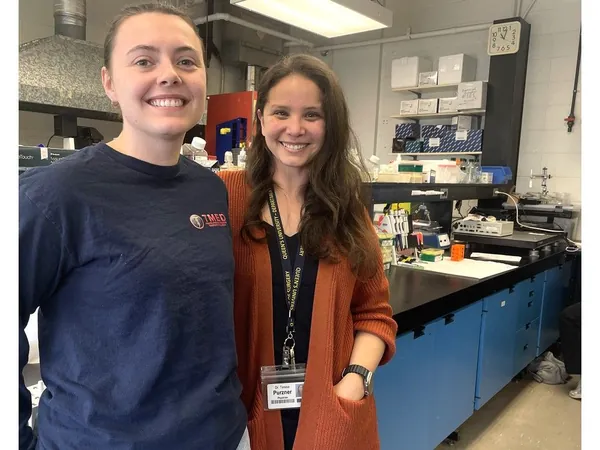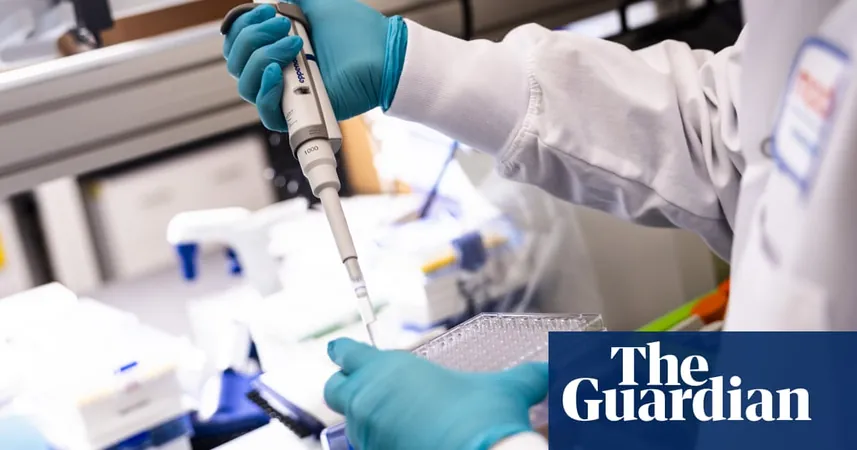
Revolutionizing Brain Tumor Care: Kingston Neurologist Makes Strides
2025-04-10
Author: Michael
Transforming Treatment for Brain Tumor Patients
A remarkable shift in brain tumor treatment is underway in Kingston, primarily driven by Dr. Teresa Purzner, a visionary neurosurgeon and clinician-scientist. With her unique blend of medical expertise and entrepreneurial experience, Dr. Purzner is transforming patient care, ensuring quicker treatment and better communication for individuals facing this daunting diagnosis.
Innovative Approach Originating from Startup Experience
Since joining Kingston Health Sciences Centre (KHSC) in 2021, Dr. Purzner has focused her efforts on revolutionizing how patients with primary brain tumors navigate the healthcare system. Acknowledged as one of Canada’s Top 40 Under 40 in 2021 for her impactful work, she recognized significant flaws in existing patient pathways, describing them as burdened by administrative delays.
Uncovering the Barriers to Effective Care
Dr. Purzner found that patients often faced an overwhelming number of obstacles when seeking treatment. In the critical first four weeks post-diagnosis, they required multiple scans and consultations—an arduous task even in the best of circumstances. With a dismal five-year survival rate of just five percent for glioblastoma patients, she knew that even small delays could have dire consequences.
A Game-Changing Model for Care Delivery
Determined to not just identify problems but actually implement solutions, Dr. Purzner decided to revolutionize the system itself. Drawing on her experience as co-founder of Cerebelly, a baby food company focused on early brain development, she adopted an entrepreneurial mindset.
“What if we approached this as a startup instead of an academic problem?” she questioned, leading to the development of the KHSC Integrative Brain Tumour Program (IBTP). This innovative network fosters collaboration among medical professionals to streamline patient treatment and improve overall communication.
Patient-Centric Changes Driven by Feedback
Through extensive interviews with patients, families, and healthcare providers, Dr. Purzner pinpointed critical areas for improvement. The IBTP focuses not only on efficient care flow but also on enhancing patient education and support, ensuring that everyone involved fully understands the process and has access to vital resources.
Empowerment Through Information and Support
As a part of the new strategy, patients now receive comprehensive toolkits post-surgery, replete with educational materials, guidance on accessing their treatments, and even information about local businesses offering assistance. The program also features dedicated navigators to help patients understand their treatment pathways.
Funded Advances for Future Research
Thanks to recent funding from the Canadian Cancer Society, KHSC is set to enhance its research capabilities and provide patients with access to cutting-edge clinical trials and therapies.
Success Stories and Future Aspirations
Since the launch of the IBTP, KHSC's patient outcomes have shown marked improvement, with a notable 40% increase in surgeries and a significant reduction in delays for radiation therapy. Hospitals globally are now looking to Dr. Purzner’s model as a potential blueprint for their own brain tumor care initiatives.
Conclusion: A Compassionate Approach to Care
Dr. Purzner emphasizes that while they are noticing positive trends, the focus remains firmly on patient choice and well-being. Each patient's treatment path is unique, and she champions the idea that individuals should have control over their health journeys. With continued innovation and a patient-first philosophy, the future looks promising for brain tumor patients in Kingston.









 Brasil (PT)
Brasil (PT)
 Canada (EN)
Canada (EN)
 Chile (ES)
Chile (ES)
 Česko (CS)
Česko (CS)
 대한민국 (KO)
대한민국 (KO)
 España (ES)
España (ES)
 France (FR)
France (FR)
 Hong Kong (EN)
Hong Kong (EN)
 Italia (IT)
Italia (IT)
 日本 (JA)
日本 (JA)
 Magyarország (HU)
Magyarország (HU)
 Norge (NO)
Norge (NO)
 Polska (PL)
Polska (PL)
 Schweiz (DE)
Schweiz (DE)
 Singapore (EN)
Singapore (EN)
 Sverige (SV)
Sverige (SV)
 Suomi (FI)
Suomi (FI)
 Türkiye (TR)
Türkiye (TR)
 الإمارات العربية المتحدة (AR)
الإمارات العربية المتحدة (AR)